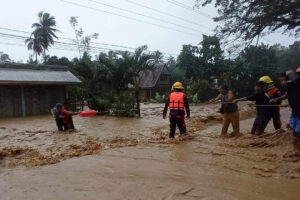Tech talent development seen to boost e-commerce in PHL

By Miguel Hanz L. Antivola, Reporter
THE PHILIPPINES must leverage its technology talent to boost the rise of e-commerce, which still lags in terms of policy, community, and mindset compared to the rest of the region, an industry expert said.
“The majority of the tools that we use here in automation, around 80%, is Vietnamese software,” Nani Razon, co-founder of the Ecommerce Thrive Asia Movement and chief executive officer of Gencys Digital Trading, Inc., said in an interview with BusinessWorld.
“Based on our observation and case study, e-commerce in the Philippines is behind by five to six years in terms of technology, community, and mindset from that of Vietnam,” he added, noting Vietnam is the Philippines’ closest competitor.
Mr. Razon said there are many good Filipino programmers, but they are still doing their work using software of foreign companies.
The e-Conomy SEA report by Google, Temasek Holdings, and Bain & Co. showed the Philippine e-commerce market had a gross merchandise value (GMV) of $16 billion last year, same as Vietnam.
Indonesia recorded the highest GMV at $62 billion, followed by Thailand with $22 billion, it added.
The report cited Vietnam’s continued manufacturing and exports as key drivers for overall digital economy growth.
For the Philippines, the shift to organized e-commerce platforms from informal and unorganized is expected to benefit the industry, it noted.
There are opportunities for the government to collaborate with the private sector and build a sustainable ecosystem for e-commerce, Mr. Razon said, which should include having the necessary tech talent to develop their own software alongside a community of skilled entrepreneurs.
“[We’re] still a baby,” he said. “The community is still small in terms of numbers. When it comes to technology, we are still behind, [although] big corporations are starting to develop their own software, hiring programmers internally,” he added.
Upon reviewing the Philippine seller base of the top Vietnamese e-commerce software, Mr. Razon said he saw only 9,000 subscribers, which is indicative of only a small volume of e-commerce businesses in the country.
This pales in comparison to the 200,000 in Vietnam, he noted.
“There are still a lot of people who don’t know about e-commerce,” Mr. Razon said, adding that most traders have failed to innovate and maximize online platforms.
“Consumers also lack awareness, and there are a lot of sellers who are scammers, contributing to the stigma toward online platforms,” he said.
Mr. Razon urged the government to pass the necessary regulations for e-commerce sustainability focusing on “a proper system and processes” and not merely profitability.
“We need to reshift to the mindset that e-commerce industry is played by skilled businesses and professionals, including the programmers,” he said.
The Internet Transactions Act, which aims to tighten e-commerce regulations, was approved by the Senate on second reading in September 2023.
Senate Bill 1865, a priority bill of President Ferdinand R. Marcos, Jr., will classify entities involved in e-commerce in the Philippines as businesses operating within the country, subjecting them to domestic laws.




